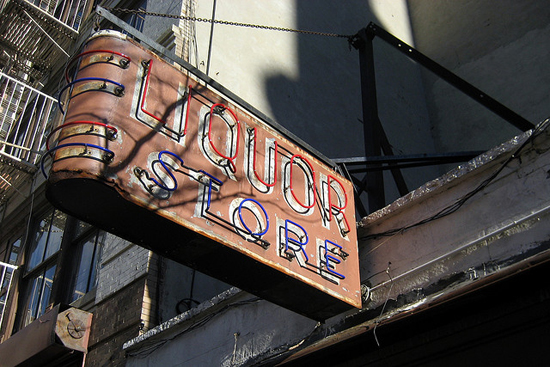BUPD Annual Security Report: Alcohol, Drug Violations Up Last Year
Officials credit higher numbers to bigger police presence

Police patrols outside neighboring liquor stores have contributed to rising arrests of underage drinkers. Photo by Wally Gobetz
Sometimes nabbing underage drinkers takes cunning; other times it requires good eyesight. Last year a Boston University police officer spotted a young-looking student walking past the station carrying a case of beer and stopped him to check his ID.
“Sure enough, he was 18,” says Scott Paré, BUPD deputy chief and deputy director of public safety. “That was very bold, I’d say.”
Underage drinking and drug violations increased last year, as did reported sexual assaults, according to BUPD’s Annual Security Report, released on September 30 and emailed to all full-time and part-time students and University employees. Colleges and universities are required by the Department of Education and the federal Clery Act to publish the yearly report.
According to the report, officers referred 620 students to the Judicial Affairs Office for underage drinking in 2010. That’s one third more referrals than in 2009. Arrests more than quadrupled, jumping from 12 in 2009 to 53 in 2010. Many were made by plainclothes officers who spotted minors buying alcohol at local liquor stores or drinking on public property—most while celebrating Marathon Monday this past April. Referrals to the JAO for drug possession on campus jumped by a quarter, rising from 44 in 2009 to 55 last year.
Paré attributes the rise in arrests and referrals to extra patrols, including several extra patrols from the Boston and Brookline Police Departments, during peak partying weekends in the early fall and late spring. Surveillance outside liquor stores and along Allston’s Pratt, Ashford, and Gardner Streets helped catch underage buyers and partygoers.
Students who are belligerent or uncooperative usually end up in cuffs. Still, Paré says, “we prefer not to arrest students because that’s something that stays on their record.”
Residence hall security and resident assistants have long partnered with University police in identifying students who stumble into residences drunk or (although rare) throw parties where alcohol is served.
“We need to do what we can to create a safe environment for students,” says David Zamojski, assistant dean of students and director of residence life. “We need to look out for and after our resident students. I see it as our job.”
The number of sexual assaults reported also rose, from one in 2009 to eight in 2010. Paré attributes the increase to more University officials receiving training on how and to whom they should report these crimes when students confide in them.
But Paré knows that the number is “way underreported.” In part, that’s because the Clery Act does not require authorities to report off-campus sexual assault to the federal government. And few students come forward after being assaulted or understand that they can report anonymously.
“We need to get these reported,” he says. “If they’re not reported, we don’t know about them and can’t take any action on them.”
Meanwhile, burglary remained at the same level campus-wide (a total of 67 incidents), a fact that disappoints Paré. Leaving valuable items in unlocked dorms or offices and in public areas like libraries or the George Sherman Union invites theft, he says. Hot targets included laptops, cell phones, and iPods.
“Part of it is that people feel comfortable here, which is a really good thing,” Paré says. “But when they feel safe, they leave their guard down.”
The BUPD’s Annual Security and Fire Safety Report is available on the BUPD website. Printed copies are available upon request.
Comments & Discussion
Boston University moderates comments to facilitate an informed, substantive, civil conversation. Abusive, profane, self-promotional, misleading, incoherent or off-topic comments will be rejected. Moderators are staffed during regular business hours (EST) and can only accept comments written in English. Statistics or facts must include a citation or a link to the citation.